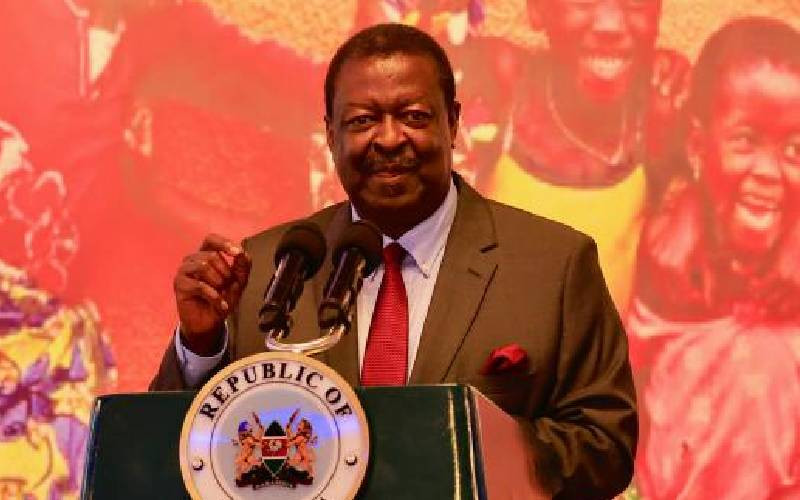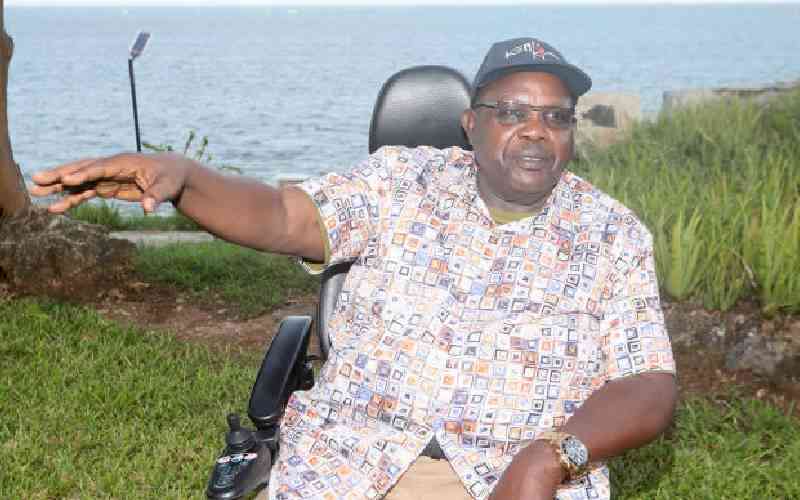BY PETER WANYONYI
Salva Kiir, president of South Sudan, is not a very decisive man. Back in June 2012, President Kiir ‘discovered’ (that’s the word used by his office) that 75 senior government officials had stolen more than US $ 4 billion from State coffers.
This was an astonishing 40% of the country’s Gross Domestic Product. Considering South Sudan had, by then, been in existence for barely a year, the revelation was not only astonishing. How those officials could steal so much, in such a short time, when the country was essentially the poorest on earth was mind-boggling.
Guilty
It seemed obvious, then, that President Kiir would wield the axe. It was expected that he would get his prosecutors working overtime, suspend the officials guilty of the mega-theft and have them arraigned before courts across South Sudan but Wapi (nothing happened). President Kiir reacted rather lamely — he sent a letter to the 75 government officials, begging them to return the stolen funds.
President Kiir appealed to “the better angels” in his officials’ consciences in the futile hope that the thieves would get guilty and return the cash. But, as expected, not a single penny was returned.
The dysfunction within South Sudan’s government is legendary, even by African standards: armed militias roam the land and terrorise citizens and foreigners alike, at will.
The country’s ministry in charge of livestock attempted to commercialise the vast herds of cattle that South Sudanese prize more than their own lives, and was met with hostility and even a few threats.
Foreign investors put money into any venture outside of the rag-tag capital, Juba, at their own very significant risk. It is common for foreign workers to be shot dead for reasons as frivolous as looking suggestively at the tall ladies of South Sudan.
Such a country, riven with tribal rivalries and patrolled by half-naked locals carrying AK-47 rifles, needs a ruthless, decisive president to impose peace and clamp down on ethnic and other sectarian divisions. Not President Kiir.
Just when decisive leadership was expected from him, he buckled again. Look, in July this year, President Kiir sacked his entire cabinet, including his then vice president, Riek Machar. Dr Machar had been a vocal opponent of Kiir’s leadership style, and it was always just a matter of time before he was kicked out.
Camouflage
But rather than just sack him and explain to the nation why he did so, President Kiir chose to camouflage this by firing the entire cabinet, too. He then appointed a new cabinet without a vice president, filling that position only much later.
This lack of direction from President Kiir shows up everywhere in South Sudan, where erstwhile warlords run regions with an appetite for casual violence and intense tribal hatred. The reshuffled cabinet of South Sudan illustrates a lesson that African countries need to internalise. Delivery of services is dependent on institutions, not individuals. A rotten state will never deliver, regardless of who sits in the Cabinet.
Stay informed. Subscribe to our newsletter
 The Standard Group Plc is a
multi-media organization with investments in media platforms spanning newspaper
print operations, television, radio broadcasting, digital and online services. The
Standard Group is recognized as a leading multi-media house in Kenya with a key
influence in matters of national and international interest.
The Standard Group Plc is a
multi-media organization with investments in media platforms spanning newspaper
print operations, television, radio broadcasting, digital and online services. The
Standard Group is recognized as a leading multi-media house in Kenya with a key
influence in matters of national and international interest.
 The Standard Group Plc is a
multi-media organization with investments in media platforms spanning newspaper
print operations, television, radio broadcasting, digital and online services. The
Standard Group is recognized as a leading multi-media house in Kenya with a key
influence in matters of national and international interest.
The Standard Group Plc is a
multi-media organization with investments in media platforms spanning newspaper
print operations, television, radio broadcasting, digital and online services. The
Standard Group is recognized as a leading multi-media house in Kenya with a key
influence in matters of national and international interest.








